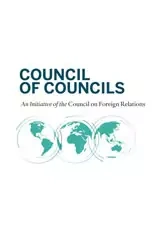- Iran
- Israel-Hamas
-
Topics
FeaturedIntroduction Over the last several decades, governments have collectively pledged to slow global warming. But despite intensified diplomacy, the world is already facing the consequences of climate…
-
Regions
FeaturedIntroduction Throughout its decades of independence, Myanmar has struggled with military rule, civil war, poor governance, and widespread poverty. A military coup in February 2021 dashed hopes for…
Backgrounder by Lindsay Maizland January 31, 2022
-
Explainers
FeaturedDuring the 2020 presidential campaign, Joe Biden promised that his administration would make a “historic effort” to reduce long-running racial inequities in health. Tobacco use—the leading cause of p…
Interactive by Olivia Angelino, Thomas J. Bollyky, Elle Ruggiero and Isabella Turilli February 1, 2023 Global Health Program
-
Research & Analysis
FeaturedRush Doshi is senior fellow for China and Indo-Pacific studies and director of the initiative on China strategy at the Council on Foreign Relations (CFR). His expertise includes China’s foreign polic…
April 15, 2024
-
Communities
Featured
Webinar with Carolyn Kissane and Irina A. Faskianos April 12, 2023 Academic and Higher Education Webinars
-
Events
FeaturedJohn Kerry discusses his work as U.S. special presidential envoy for climate, the challenges the United States faces, and the Biden administration’s priorities as it continues to address climate chan…
Virtual Event with John F. Kerry and Michael Froman March 1, 2024
- Related Sites
- More
April 27, 2017
GlobalBottom Line: British Prime Minister Theresa May’s decision to seek early elections comes as the economic costs of Brexit are becoming more apparent. While the removal of electoral uncertainty may be …
August 22, 2016
BrexitSteven A. Tananbaum Senior Fellow for International Economics Robert Kahn argues that markets have absorbed the initial economic shock from Brexit, but navigating the new landscape will remain a challenge. Two months after the vote, the politics of Brexit is producing a lengthy and uncertain renegotiation of Britain’s place in Europe and the world. Such extended uncertainty is likely to produce a long-lasting drag on both UK and European economies, which could ultimately threaten the viability of the European Union (EU).
January 5, 2017
GlobalGrowing opposition to globalization and global governance is upending the established international order, weakening prospects for addressing today's most pressing transnational threats, and minimizi…

July 18, 2016
RussiaSteven A. Tananbaum Senior Fellow for International Economics Robert Kahn argues that summer has seemingly brought a new optimism about the Russian economy. Russia’s economic downturn is coming to an end, and markets have outperformed amidst global turbulence. But the coming recovery is likely to be tepid, constrained by deficits and poor structural policies, and sanctions will continue to bite. Brexit-related concerns are also likely to weigh on oil prices and demand. All this suggests that Russia’s economy will have a limited capacity to respond to future shocks.
March 15, 2017
GreeceSteven A. Tananbaum Senior Fellow for International Economics Robert Kahn writes that Greece and its creditors are again locked in a showdown over reforms, cash, and debt relief. Another cliff-hanger ahead of heavy July debt payments looks likely. Extend-and-pretend is a dead end for Greece and an increasingly populist Europe, and a more ambitious agreement seems ruled out by bailout fatigue in creditor countries. Markets are once again underestimating the risks of “Grexit.”
 Online Store
Online Store